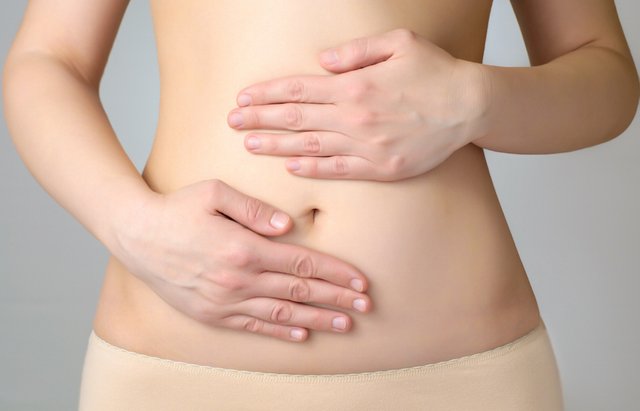8 Alarming Causes of Vaginal Bleeding Between Periods

Light vaginal bleeding, also known as spotting, that occurs between periods can occur because of many factors. Some of them (like birth control or ovulation) are harmless and don’t require any treatment while others can cause other symptoms and lead to serious complications. In this article, we have gathered eight alarming causes of vaginal bleeding between periods.
1. Uterine fibroids
Uterine fibroids are non-cancerous growth that occurs on the uterine walls. Even though the cause of fibroids is still unknown, women with increased estrogen levels are more prone to develop them. Symptoms of uterine fibroids include pelvic pain, lower back pain, spotting, and pain during sex. Your gynecologist can diagnose uterine fibroids during a pelvic exam or ultrasound.
2. Endometriosis
Endometriosis is a condition that occurs when the inner lining of the uterus that is called the endometrium starts to spread outside of the uterus on pelvic organs. In the most severe cases, the endometrial tissue can grow on the intestines and diaphragm. Endometriosis usually manifests itself through pelvic pain, vaginal bleeding between periods, severe and heavy periods, pain during sex, lower back pain, and other symptoms.
3. Sexually transmitted infections
Sexually transmitted infections are conditions that are passed from one person to another through unprotected sexual intercourse. Some of them can develop asymptomatically while others can cause abnormal vaginal discharge with a strong smell, pelvic pain, spotting, pain during sex, genital warts, etc. Untreated STIs can lead to severe complications so it is better to visit a doctor in the case of any unusual symptoms.
4. Pelvic inflammatory disease
Pelvic inflammatory disease is an inflammatory process that occurs in pelvic organs as a result of an untreated vaginal infection like chlamydia, gonorrhea, or bacterial vaginosis. The most common symptoms of pelvic inflammatory disease include:
- Chronic pelvic pain
- Irregular periods
- Painful periods
- Lower back pain
- Spotting
- Abnormal vaginal discharge with a strong odor
- Fever
If left untreated, the inflammation can cause scars and adhesions that may lead to infertility.
5. Nabothian cysts
Nabothian cysts are lumps filled with mucus that occur on the surface of the cervix or cervical canal. In some women, nabothian cysts can occur during childbirth and physical injury to the cervix. Nabothian cysts range in size from a few millimeters to four centimeters. They can be white or yellow. Nabothian cysts are usually asymptomatic, but in some women, they can cause spotting or abnormal vaginal discharge.
6. Uterine or cervical polyps
Polyps of the uterus and cervix are small abnormal tissue growths that can occur in the cervix and uterus. Most polyps are benign, but some can develop into cancer. Cervical polyps can cause spotting after sex and between periods, as well as abnormal vaginal discharge.
Symptoms of uterine polyps include:
- Irregular periods
- Heavy periods
- Bloody discharge after menopause
- Fertility problems
Some women with uterine and cervical polyps may have no symptoms at all.
7. Polycystic ovary syndrome
Polycystic ovary syndrome (PCOS) is a condition that occurs in women who have an increased level of male hormones. This condition usually manifests itself through cysts on the ovaries, irregular or missed periods, spotting, acne, weight gain, male-pattern baldness, and hirsutism. Women with polycystic ovary syndrome often experience problems with fertility since cysts block the egg release that interferes with fertilization.
8. Cervical cancer
Cervical cancer is a serious health issue that can affect not only your reproductive health. The point is that cervical cancer usually causes mild symptoms (like spotting and pain during sex) or even develops asymptomatically. If left untreated, cancer can cause severe bleeding, kidney failure, blood clots, and other severe complications.